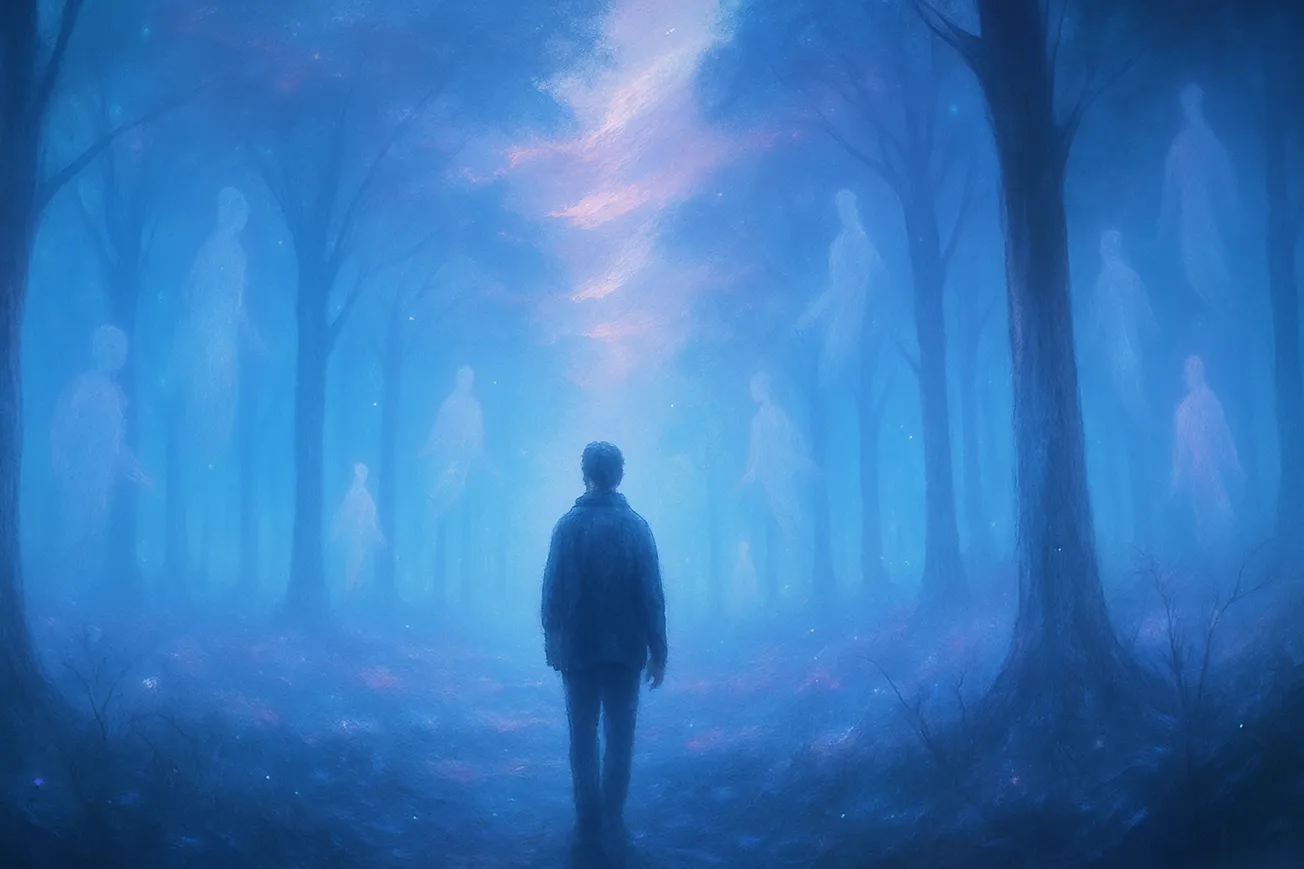🌈 The Fractal Story Engine | Death & Beyond (Afterlife) | (27) DB-003-R
Some truths cannot be held in the mind. They live in the body instead, tucked behind the ribs, coiled at the base of the spine, flickering in the space just behind the eyes. These are the truths we don’t remember learning, but which guide our hands, soften our voices, change the way we leave a room. They are not facts. They are frequencies. And they return to us like scent returns in grief.
We live in a time that worships what can be proven. What can be streamed, tracked, shared. But something in us remembers a different kind of knowing. The kind that does not need to explain itself. The kind that bends time around meaning. The kind that visits only when we are very still.
The idea that you might spend five minutes each year in the afterlife is strange, but it touches something deeply human. We long for proximity to what is beyond us, not to conquer it, but to touch it and return changed. Not all the way changed. Just enough. Enough to live a bit softer. Enough to remember that we are more than appetite and ambition.
I once sat with someone I loved as they died. The moment they left, the room didn’t feel empty. It felt full. Not of them exactly, but of something else. Some resonance that hummed through the floor and into my chest. I could not explain it then, and I won’t try now. But I know it shaped me. And I know that something in me still lives inside that minute.
We don’t need to recall the vision to be shaped by it. In fact, most transformation happens in places the mind can’t reach. A glance exchanged. A sound misheard. A silence held too long. These are the portals that change us. These are the minutes that outlive the clock.
Perhaps the afterlife is not a place, but a rhythm. A truth that can’t be carried in words, only felt in the way we kneel to tie a child’s shoe, or speak to a stranger with sudden gentleness. Perhaps five minutes is all it takes to remember that we were never separate to begin with.
What would change if we lived as if we had already been there?
What would happen if we stopped trying to capture the moment, and instead let it shape the way we walk?
What if you are already carrying your five minutes, somewhere in the soft machinery of your breath?
What can the reader learn from this story?
True transformation does not depend on memory. It leaves its mark in how we move through the world. The sacred often arrives without explanation, shaping our choices in quiet ways. What matters most may not be what we can recall, but what we allow to remain.

